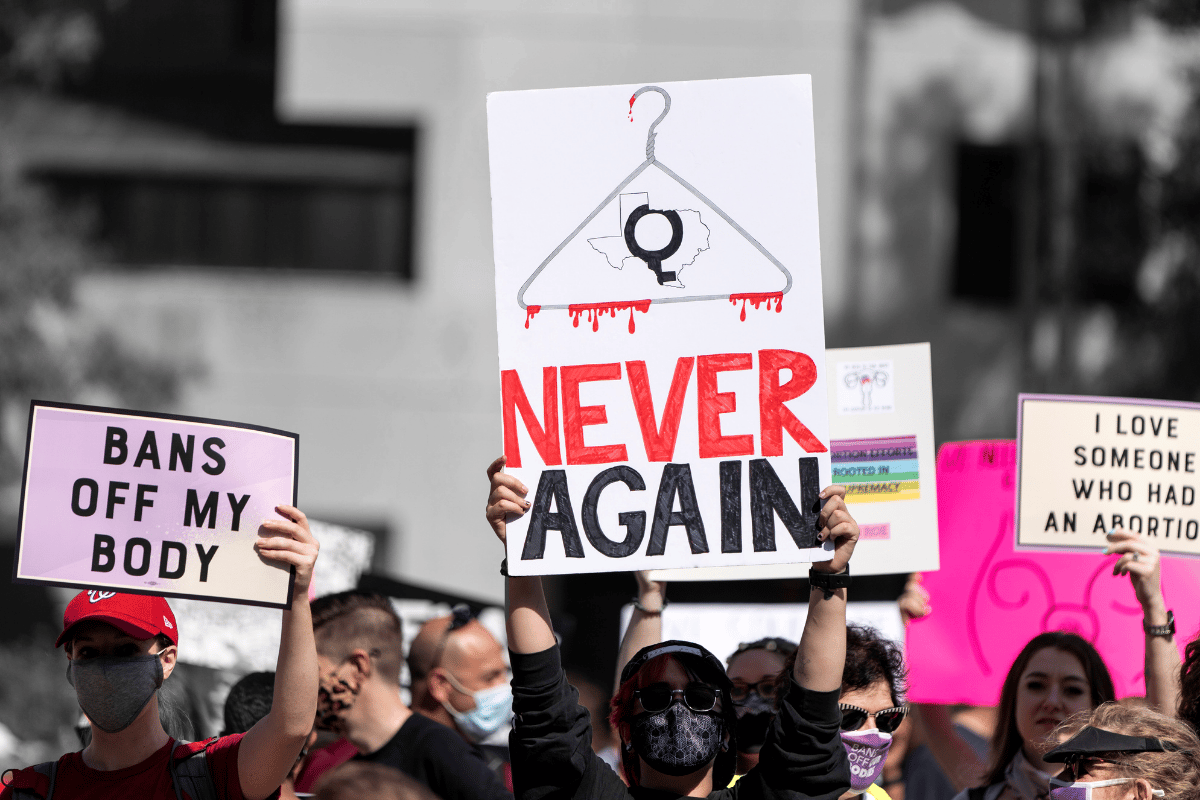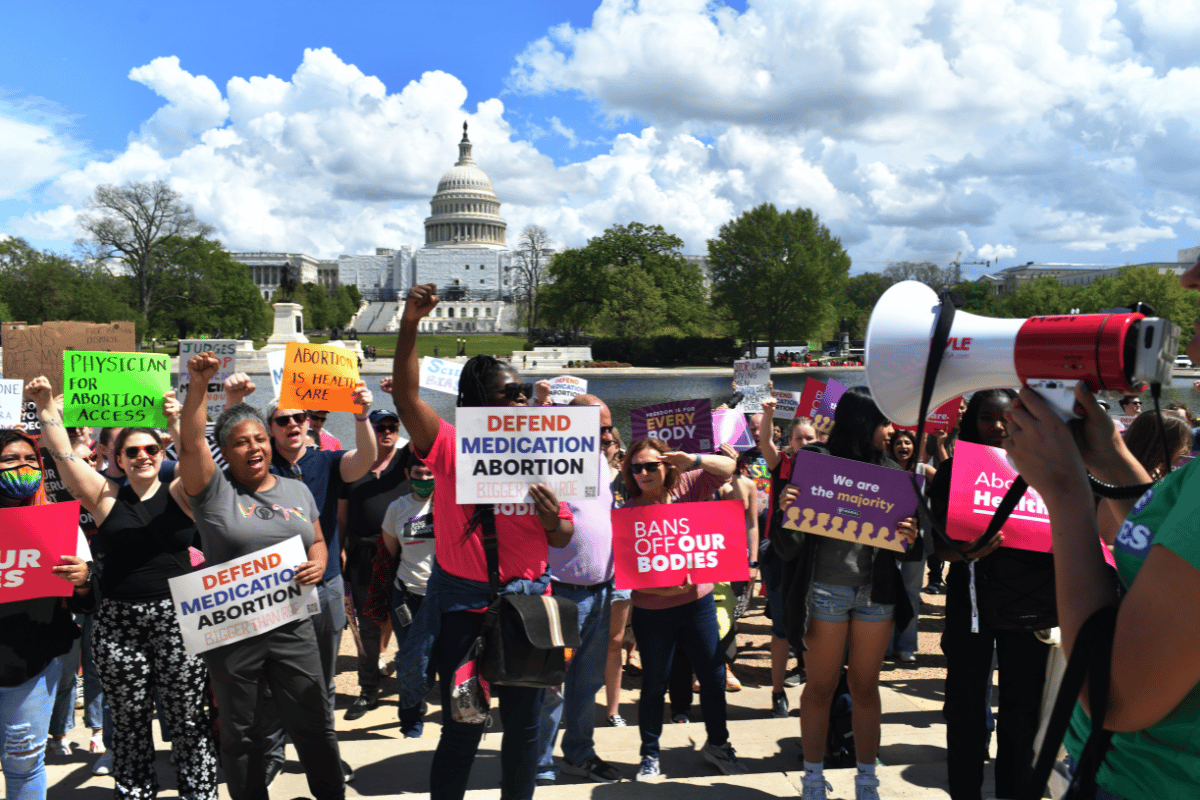
Content warning: This story includes descriptions of sexual assault and miscarriage that may be distressing to some readers.
It's officially been one year since the women of America had their reproductive rights ripped away from them.
On June 25 2022, the US Supreme Court overturned the Roe v. Wade ruling; the 1973 law that recognised a woman's constitutional right to abortion.
And just like that, the abortion rights of US women were set back by 50 years - guns essentially having more rights than women.
And for women across the world watching on, it was a sobering time too.
Watch: a look back at Speaker of the House Nancy Pelosi's speech on Roe V Wade being overturned. Post continues below.
Over the past year, the stories we've heard from women and pregnant people have been confronting.
But we can't look away.
We remember the 10-year-old rape victim who was forced to travel from Ohio to another state for an abortion. At the time she was six weeks pregnant, and was ineligible for an abortion in her own state.
In Arizona, 21-year-old Chloe was denied an abortion after finding out her baby girl "wasn't going to make it".


Top Comments